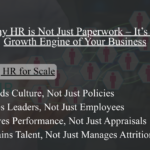
In the fast-paced business world, the difference between mediocrity and excellence often boils down to habits. James Clear’s “Atomic Habits” sheds light on the powerful role habits play in personal and professional growth. This article explores how small, consistent actions can lead to significant improvements and offers actionable steps for building effective habits and breaking bad ones.
Why Habits Matter
Success is not a one-time event but a result of small actions repeated consistently over time. By focusing on systems instead of goals, we can achieve sustained growth. Clear’s principle of becoming “1% better every day” illustrates how incremental progress leads to exponential results—improving by 37.78% in just one year.
For business leaders and entrepreneurs, mastering habits is key to enhancing productivity, fostering teamwork, and achieving organizational goals.
Breaking Down the Habit Loop
1. Cue: Make It Obvious
Habits start with a trigger. To develop good habits:
- List your daily habits: Categorize them as positive, negative, or neutral.
- Use habit stacking: Pair a new habit with an existing routine (e.g.,”After my morning coffee, I will review my daily tasks”).
- Redesign your environment to support habits (e.g., place healthy snacks on your desk to encourage better eating).
2. Craving: Make It Attractive
To sustain a habit, it must appeal to you:
- Bundle temptations: Combine habits with something enjoyable (e.g., “Listen to your favorite podcast while exercising”).
- Surround yourself with peers whose behavior inspires you.
- Develop a motivation ritual, such as a pre-work routine that energizes you.
3. Response: Make It Easy
The simpler the action, the easier it is to form a habit:
- Focus on repetition, not perfection. Consistency matters more than intensity.
- Apply the 2-minute rule: Begin with a small, manageable version of the habit.
- Automate processes wherever possible (e.g., scheduling recurring tasks).
4. Reward: Make It Satisfying
Reinforce habits with positive outcomes:
- Celebrate small wins immediately (e.g., check off completed tasks on a habit tracker).
- Use incentives to stay motivated (e.g., treat yourself after achieving weekly goals).
- Avoid pitfalls like relying solely on metrics, which may distort true progress.
How to Break Bad Habits
- Reduce exposure: Identify and eliminate triggers for harmful habits.
- Reframe your mindset: Focus on the benefits of avoiding bad habits (e.g., more time, better health).
- Increase friction: Add barriers to make bad habits harder to perform.
- Create accountability: Use social contracts or public commitments to discourage harmful behaviors.
Habit Transformation in Action
Rahul Revne, founder of RRTCS, implemented Clear’s habit strategies to transform his consulting business. By automating routine tasks and habit stacking, Rahul significantly improved his productivity. He paired his daily review with his morning tea, ensuring consistency, and used a habit tracker to monitor progress. These small changes helped him scale his business, making it system-driven rather than individual-driven.
Practical Tips for Building Winning Habits
- Start small: Focus on one habit at a time.
- Leverage your environment: Align your surroundings with your goals.
- Track your progress: Use apps or journals to monitor habits.
- Involve others: Collaborate with peers or mentors for accountability.
Key Takeaways
- Habits are the foundation of success—focus on systems, not just goals.
- Build good habits by making them obvious, attractive, easy, and satisfying.
- Break bad habits by reducing exposure, reframing their appeal, and creating accountability.
- Small, consistent improvements compound over time, leading to massive results.
The principles of “Atomic Habits” aren’t just for individuals; they’re a roadmap for businesses to foster innovation, efficiency, and growth.
Transform your organization with RRTCS! Learn how to implement habit-driven strategies to make your business people, data, and system-driven. Visit www.rahulrevne.com today and start your journey toward excellence.
About the Author
Rahul Revne is the founder of RRTCS, a company that specializes in organizational transformation and business consulting. With years of experience creating system-driven businesses, Rahul helps entrepreneurs and companies achieve sustained success through actionable strategies and innovative practices.
References
- Clear, J. (2018). Atomic Habits: An Easy & Proven Way to Build Good Habits & Break Bad Ones.












